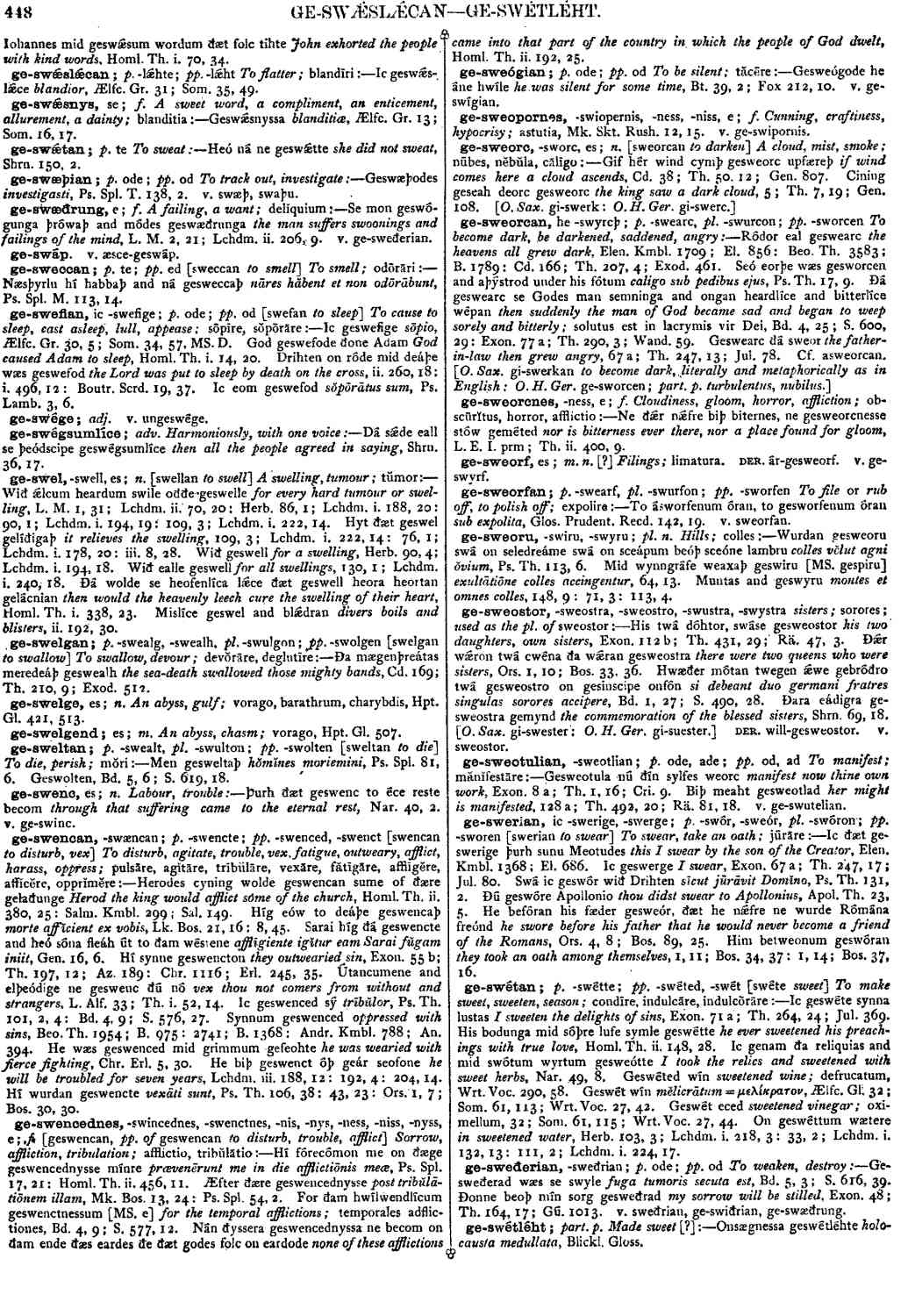ge-sweorcan
- verb [ strong ]
-
Ródor eal geswearc
the heavens all grew dark,
- Elen. Kmbl. 1709; El. 856: Beo. Th. 3583; B. 1789: Cd. 166; Th. 207, 4; Exod. 461.
-
Seó eorþe wæs gesworcen and aþýstrod under his fótum
caligo sub pedibus ejus,
- Ps. Th. 17, 9.
-
Ðá geswearc se Godes man semninga and ongan heardlíce and bitterlíce wépan
then suddenly the man of God become sad and began to weep sorely and bitterly;
solutus est in lacrymis vir- Dei, Bd. 4, 25; S. 600, 29: Exon. 77 a; Th. 290, 3; Wand. 59.
-
Geswearc ðá sweor
the father-in-law then grew angry,
67 a;- Th. 247, 13; Jul. 78.
- Cf. asweorcan.
Bosworth, Joseph. “ge-sweorcan.” In An Anglo-Saxon Dictionary Online, edited by Thomas Northcote Toller, Christ Sean, and Ondřej Tichy. Prague: Faculty of Arts, Charles University, 2014. https://bosworthtoller.com/16263.
Checked: 0